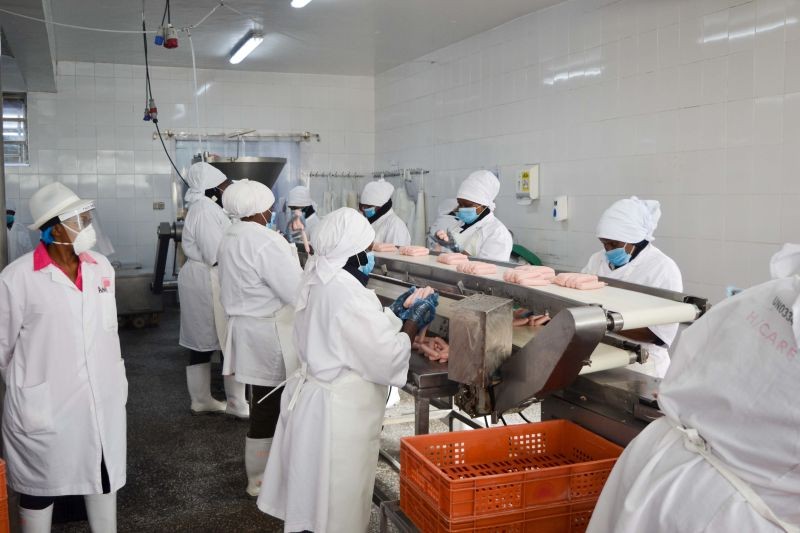advertisement
Farmers Choice Adopts Cloud Solutions To Improve Food Quality
Farmer’s Choice has announced that it is scaling up the use of advanced technologies within its existing agriculture ecosystem to…

Farmer’s Choice has announced that it is scaling up the use of advanced technologies within its existing agriculture ecosystem to enhance productivity, ensure food safety and quality, and reduce waste. The move by the 40-year old company has been informed by their quest to adopt sustainable farming practices, including increasing the adoption of cloud solutions to improve food quality and security.
“Customers are our priority, and we owe them quality excellence,” says Flora Kinuthia, CIO of Farmer’s Choice. The coordination of all activities in Microsoft cloud solutions gives the company unmatched visibility over the entire life cycle of meat production, allowing it to respond to supply and demand changes proactively. “We need to ensure we stay efficient in terms of pricing, wastage, and the use of products in the factory. Therefore, food traceability is especially important to us.”
According to World Bank estimates, food production and processing in Africa currently generates over $300 billion annually. With the continent at large embracing digitally transforming, this figure is only set to rise to $1 trillion a year by 2030 if farmers are given the right access to inputs and resources.
advertisement
“Working with organisations within the sector, forming partnerships that will benefit individuals in the space and facilitate scaling has allowed for these numbers to become more of a likely reality. In Kenya, Microsoft has partnered with Farmer’s Choice to improve food quality and security,” says Judemark Bwire, Azure Specialist for East and Southern Africa at Microsoft.
According to Eric Muga, the Senior Database Administrator at Farmer’s Choice, the cloud-based solutions help to streamline the information flow between all departments, making vital data accessible to all users, starting from the initial data capture on the farms. “We have IoT (internet of things) readers that capture data to use with Dynamics 365 Business Central. The procurement management needs to see what is happening on the farms. And the farm management system is completely outside of where we are seated,” Muga explains. “So, everybody connects to a central location to upload the captured data and work with it.”
The company’s tech stack also includes automation, which runs on Azure and minimizes human error. Previously, a person would weigh animals and write down the scores manually. This could lead to missing weights or incorrect data that jeopardized decision-making. “Now, we capture data directly from the main scale, without human intervention, in real-time and with virtually no errors,” he explains further.
advertisement
Accurate tracking and recordkeeping also benefit the company’s suppliers, who can keep pace with fluctuating inventory levels to match customer expectations. “We can move fast through operations, updating the system in real-time. We give our salespeople mobile devices so they can take orders and communicate to customers what products are available on the floor,” says Annie Mugumo, Management Accountant at Farmer’s Choice. “This leads to happier customers.”
From a financial perspective, the cloud-based infrastructure generates significant savings. “There have been some running costs in our IT department, like server maintenance or storage. These are now things of the past,” she observes.
Judemark from Microsoft concluded: “Digitally transforming the agriculture space has always been a key priority for our organisation. With Microsoft cloud solutions, Farmer’s Choice can remain focused on sustainability and efficiency as it looks toward the future.”